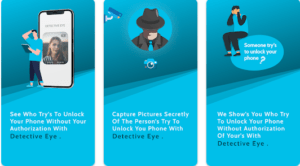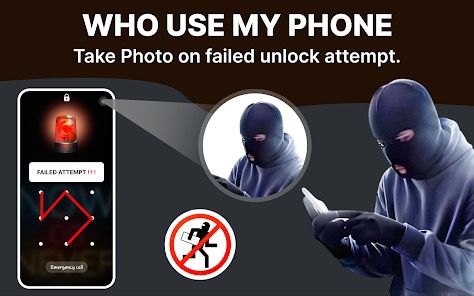Smart Lock
In an era where technology is rapidly evolving, the concept of home security has also undergone a transformation. Enter the smart lock: a device that not only provides enhanced security for your home but also adds a layer of convenience that traditional locks cannot match. Smart locks utilize advanced technology to offer features like remote access, keyless entry, and real-time notifications, making them an ideal choice for modern homeowners.
This comprehensive review will explore the various features, specialties, uses, and the main themes surrounding smart locks. We will also discuss the pros and cons of these devices in a detailed table format, ensuring you have all the necessary information to decide whether a smart lock is right for you.

Features of Smart Lock
Smart locks come packed with a variety of features designed to enhance security and convenience. Below are some of the most common features you can expect:
1. Keyless Entry
One of the standout features of smart locks is the ability to unlock your door without a physical key. Instead, users can gain access through:
- Bluetooth Connectivity: Use your smartphone to unlock the door when you are within range.
- Keypads: Enter a unique PIN code to gain access.
- Biometric Scanners: Some models come equipped with fingerprint scanners for quick access.
2. Remote Access
With smart locks, you can control your door from anywhere in the world. Most smart locks connect to your home Wi-Fi network and can be controlled through a smartphone app, allowing you to:
- Lock or unlock your door remotely.
- Grant access to guests or service providers.
- Monitor who enters and exits your home in real-time.
3. Integration with Smart Home Devices
Smart locks can be integrated with other smart home devices, enhancing your overall home automation system. Compatibility with voice assistants like Amazon Alexa and Google Assistant allows you to control your lock with voice commands.
4. Activity Logs
Most smart locks provide an activity log that tracks all access events, including when the door was locked or unlocked and who accessed it. This feature is particularly useful for monitoring your home’s security.
5. Battery Backup
Smart locks typically come with battery backup systems to ensure they remain operational even during power outages. Many models will also send notifications when the battery is running low.
Specialty of Smart Lock
The specialty of smart locks lies in their ability to blend cutting-edge technology with everyday security needs. Here are some areas where smart locks excel:
1. Enhanced Security
Smart locks utilize advanced encryption methods to protect your data and prevent unauthorized access. Features like two-factor authentication add another layer of security, ensuring that only you can access your home.
2. Convenience for Homeowners
Gone are the days of fumbling for keys in your pocket. With smart locks, you can easily unlock your door using your smartphone or simply by entering a code. This convenience is particularly beneficial when your hands are full.
3. Customization Options
Many smart locks offer customizable settings, allowing users to create unique PIN codes for different users. This feature ensures that you can control who has access to your home and when.
4. Real-Time Alerts
Receive real-time alerts on your smartphone whenever someone enters or exits your home. This feature provides peace of mind, especially for those who frequently have visitors or service providers entering their homes.
Uses of Smart Lock
Smart locks have a variety of applications beyond just securing your home. Here are some common uses:
1. Rental Properties
For landlords, smart locks provide a convenient way to manage access for tenants. You can easily change codes between tenants and grant temporary access for maintenance personnel without needing to be on-site.
2. Vacation Homes
If you own a vacation home, a smart lock allows you to grant access to friends or family without having to provide a physical key. You can also check the activity logs to monitor who accessed the property.
3. Busy Households
In households with multiple members, smart locks simplify access. Family members can use their smartphones or unique codes to enter the home, eliminating the need for everyone to carry keys.
4. Elderly and Disabled Individuals
Smart locks can be particularly beneficial for elderly or disabled individuals who may have difficulty using traditional keys. Features like voice activation or smartphone access can significantly enhance their independence.
Main Theme of Smart Lock
The main theme of smart locks revolves around security and convenience. These devices are designed to provide homeowners with enhanced security while also offering a level of convenience that traditional locks cannot match. As technology continues to advance, the integration of smart locks into everyday life is becoming increasingly common, making them an essential component of modern home security systems.
Pros and Cons of Smart Lock
While smart locks offer numerous benefits, they also come with some drawbacks. The table below summarizes the key pros and cons of using smart locks:
| Pros | Cons |
|---|---|
| Keyless entry for convenience | Dependence on technology (smartphones, batteries) |
| Remote access and control | Higher initial cost than traditional locks |
| Activity logs for monitoring | Potential cybersecurity risks |
| Integration with smart home systems | Installation can be complex for some users |
| Customizable user access | Battery replacement needed periodically |
Conclusion Smart Lock
Smart locks represent the future of home security, combining advanced technology with ease of use. With features like keyless entry, remote access, and real-time alerts, these devices offer unparalleled convenience while ensuring your home remains secure. While there are some drawbacks, the benefits of smart locks often outweigh the cons, making them an excellent investment for modern homeowners.
As you consider whether to install a smart lock in your home, keep in mind the various options available and the specific needs of your household. With the right smart lock, you can enjoy enhanced security and convenience, making your life easier and safer.
FAQs Smart Lock
1. Are smart locks secure?
Yes, smart locks use advanced encryption technology to protect against unauthorized access. However, it’s essential to choose a reputable brand and regularly update your passwords for optimal security.
2. Can I still use a traditional key with a smart lock?
Many smart locks come with a backup key option, allowing you to use a physical key in case of emergencies or if the electronic components fail.
3. How long do the batteries last in a smart lock?
Battery life can vary depending on the model and usage, but most smart locks will last anywhere from 6 months to a year on standard batteries. It’s essential to monitor battery levels and replace them as needed.
4. Can I install a smart lock myself?
Most smart locks are designed for easy installation and can typically be installed by homeowners without professional help. However, some models may require more advanced installation skills.
5. Do smart locks work during power outages?
Yes, most smart locks are equipped with battery backup systems to ensure they remain operational even during power outages, providing peace of mind for homeowners.
By understanding the features, benefits, and potential drawbacks of smart locks, you can make an informed decision about enhancing your home security with this innovative technology.



